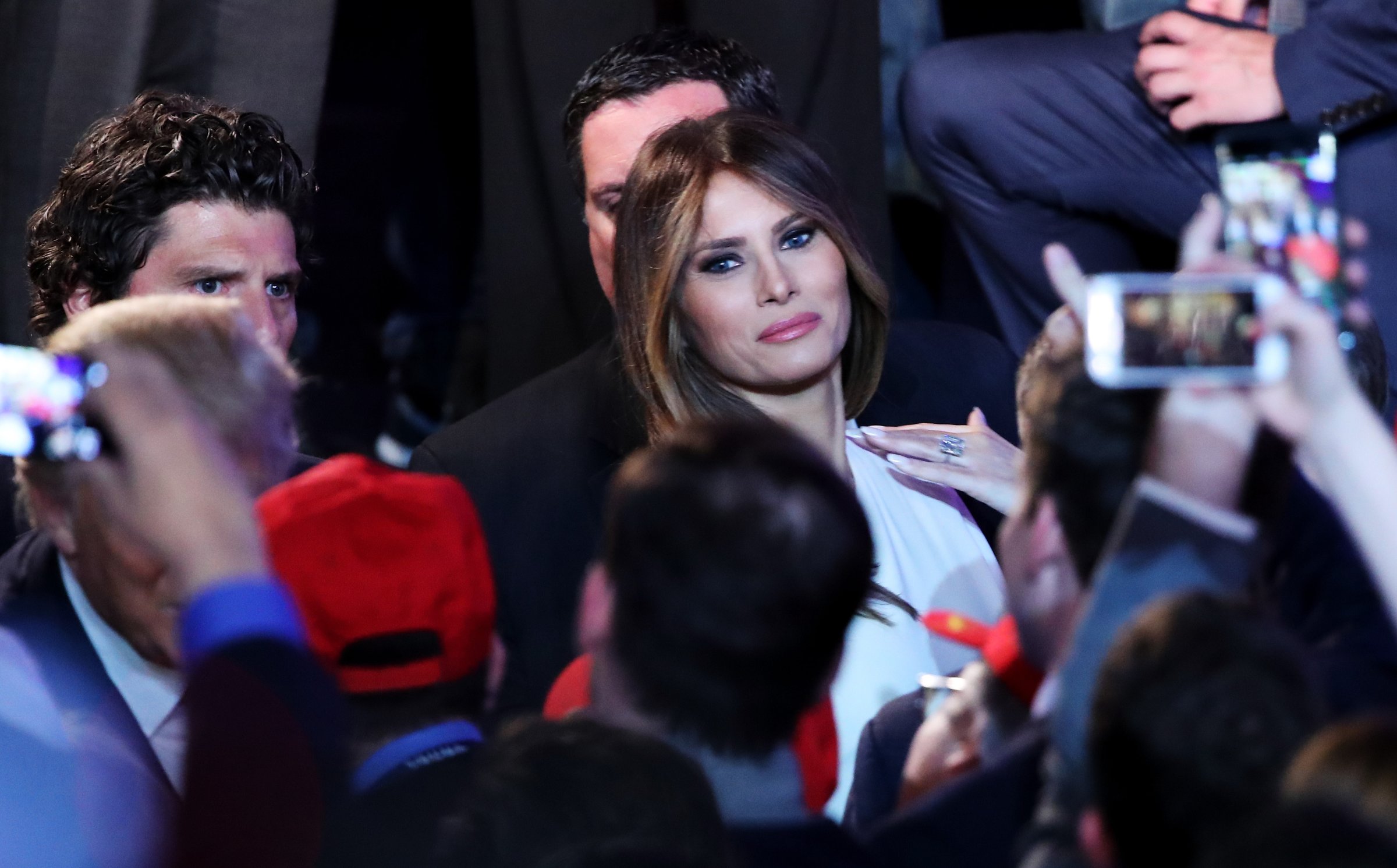
Her husband won a contentious, bruising election for the presidency, despite losing the popular vote. He was said to be dismissive of women. She was born in Europe and made a home in the United States only in her mid-20s. But, married to an ambitious scion, she was accustomed to hobnobbing with the rich and powerful. Of course I’m talking about Louisa Adams, wife of our sixth president John Quincy Adams, who called the White House a “dull and stately prison.”
Donald Trump’s key appointments are beginning to reveal the outlines of his incoming administration and its priorities. But what about a position that is essentially already filled—that of first lady? It’s an undefined role that is shaped as much by the woman who occupies it as by Americans’ expectations of women and of wives at a given moment in time. What a first lady does and how those actions are received also tells us a little bit about ourselves, especially as we look back through a historical lens.
As champions, advocates, ambassadors and, yes, wives, sometimes first ladies overstep traditional bounds and are deemed controversial. Other times, they hit just the right balance, generating goodwill for their husbands’ administrations while making a substantive contribution. Where a first lady falls on this spectrum depends in part on the balance she strikes between her pursuits and the public’s appetite for her engagement.
A first lady is an unelected advisor who knows the president’s strengths and vulnerabilities on a personal level better than anyone else could. As his chosen life partner, she is his most trusted ally. And yet, that intimate access also generates suspicion that first ladies may overstep some invisible boundary in the eyes of jealous staffers or a public unwilling to see the position of “wife” as qualifying her to have informed opinions. Regardless of political party or issue of focus, all first ladies need to adapt to the unusual, unspoken, sometimes contradictory expectations of the position while under the unforgiving glare of the brightest spotlight.
Donald Trump defeated a former first lady, Hillary Clinton, for the Oval Office. As is well documented, Clinton was both beloved and reviled as a lightning rod while she advocated for many of the Clinton administration’s top initiatives as a groundbreaking first lady. After the White House, she went on to do many things no other first lady had ever done, including being the first woman ever to come close to winning the White House, garnering almost 66 million votes, the choice of an overwhelming plurality of American voters in 2016.
Pioneering as she was, First Lady Hillary Clinton stood on the shoulders of all the women who occupied that position before her and at different points she evoked their memories. Abigail Adams’s prescient early call for women’s rights; Eleanor Roosevelt’s unwavering social activism; and Jackie Kennedy’s commitment to preserving the history of the presidency all influenced Clinton’s service.
And then there were the first ladies who couldn’t avoid the sting of the public’s rebuke, no matter what their intentions were. Mary Todd Lincoln’s fiery independence and abolitionist agenda, along with her designs for refurbishing a decaying White House during the Civil War, evinced harsh criticism. Nellie Taft played so prominent a role early in her husband’s presidency that he once addressed a note to her “to the real President from the nominal President” and her confrontations with personnel terrified senior staff. Nancy Reagan was vilified for her presumed manipulations of the president and for her lavish tastes.
There may be a hint of chauvinism in these broadsides, and a whiff of discomfort regarding perceived nepotism that ignites such a strong backlash against first ladies who appear to overreach. But another factor may also be the public’s reaction against first ladies who don’t respect the symbolic weight of their unusual position, pushback by a populace that wants to see a first family operate above the fray of political horse-trading. Michelle Obama will leave office enormously popular. This may be because she stuck to a few non-partisan, core issues during her time as first lady, despite being an experienced, Harvard-educated attorney who is no stranger to political combat.
Life in the White House is anything but predictable. We don’t know yet how Melania Trump will shape her husband’s presidency or what her story will tell us about the complexity and contradictions of our attitudes towards women in our time. But as we enter a new and uncertain era for the presidency, it’s comforting to know that the family entering the White House and assuming these extraordinary roles will inevitably learn from, and lean on, the lessons of their predecessors and the institutional memory of our grand People’s House. Perhaps Melania Trump’s decision to stay in New York for her son’s schooling was prompted by Jackie Kennedy’s advice not to “bungle raising your children.” Or maybe, for now, she’s keeping her distance from the White House because she was moved by something else Jackie Kennedy said: “The one thing I do not want to be called is ‘first lady’… It sounds like a saddle horse.”
More Must-Reads from TIME
- Cybersecurity Experts Are Sounding the Alarm on DOGE
- Meet the 2025 Women of the Year
- The Harsh Truth About Disability Inclusion
- Why Do More Young Adults Have Cancer?
- Colman Domingo Leads With Radical Love
- How to Get Better at Doing Things Alone
- Michelle Zauner Stares Down the Darkness
Contact us at letters@time.com